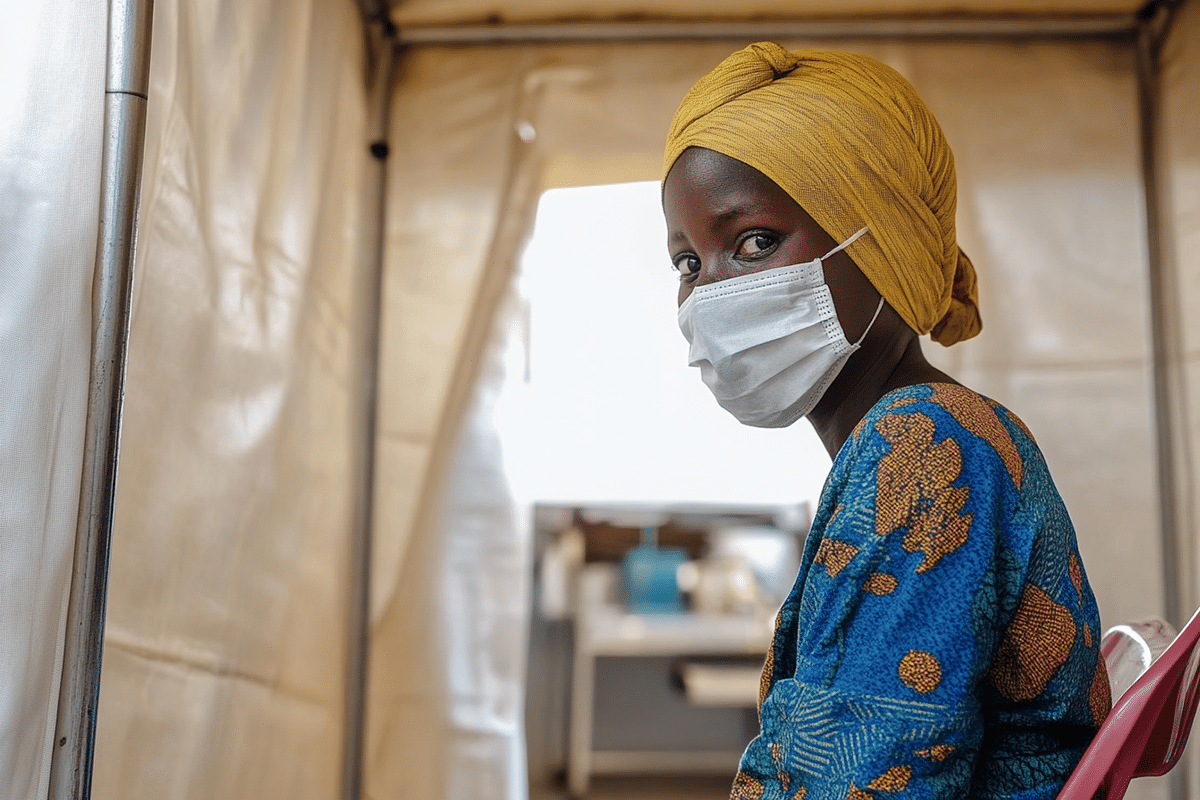The Democratic Republic of Congo has received a significant shipment of mpox vaccines, marking a crucial step in combating one of the worst outbreaks of the disease seen in recent years. A total of 50,000 doses of the JYNNEOS vaccine arrived from the United States, a week after an initial batch of 100,000 doses was delivered by the European Union. These doses aim to curb the spread of the virus in the most affected provinces of the country.
Prioritizing the Hardest-Hit Regions
Congo’s vaccination rollout is scheduled to begin on October 2, with a primary focus on Equateur, South Kivu, and Sankuru, the three provinces most severely impacted by the outbreak. This initial phase will prioritize adults, particularly those who have been in close contact with infected individuals and high-risk groups, such as sex workers. While the vaccine has already been authorized for emergency use in the U.S. and Europe, Congo has now approved it for use in adults to address its escalating public health crisis.
The shipment from the United States is a part of the ongoing international effort to combat mpox, which has been declared a global emergency by the World Health Organization (WHO). Combined with the EU’s previous donation, Congo has now received 250,000 doses, though this number is just a fraction of the 3 million doses authorities say are necessary to control the outbreak. EU member states have pledged more than 500,000 additional doses, but a clear timeline for their arrival has not yet been established.
Escalating Cases Across Africa
Since the beginning of 2024, Africa has seen a sharp rise in confirmed mpox cases, with 5,549 recorded infections and 643 associated deaths. Congo has borne the brunt of the outbreak, accounting for 91% of all cases across the continent. This dramatic surge represents a significant increase in both infections and fatalities compared to previous years, particularly among children under 15, who are the most vulnerable population in both Congo and neighboring Burundi, the second hardest-hit country.
The severity of the situation prompted the Africa Center for Disease Control and Prevention (CDC) and the WHO to launch a continent-wide response plan. This initiative came shortly after the WHO declared the outbreaks in 12 African countries a global emergency. These coordinated efforts are aimed at accelerating vaccination distribution, improving healthcare infrastructure, and raising public awareness to prevent further spread of the disease.
Vaccine Rollout Strategy
While the current focus is on vaccinating adults, especially those at higher risk, there are ongoing discussions about extending the vaccine’s use to younger age groups. The European Medicines Agency is currently reviewing additional data that may allow the vaccine to be administered to children aged 12 to 17. A decision is expected by the end of the month, which could significantly expand the number of people eligible for vaccination in Congo and other affected areas.
For now, the vaccine rollout in Congo will concentrate on adults, with priority given to those most exposed to the virus. This targeted approach is expected to help contain the spread of the virus, especially in the most affected regions, while authorities work on securing additional doses.
Future Vaccine Deliveries
The arrival of the U.S. vaccines follows earlier deliveries from the EU, which provided an initial batch of 100,000 doses through HERA, the European Union’s health emergency agency. Another 100,000 doses were delivered over the weekend, bringing the total to 250,000 doses. However, health officials in Congo remain concerned about the vaccine shortfall, given that 3 million doses are needed to bring the outbreak under control.
More vaccine shipments are anticipated in the coming weeks. Congo is expecting its next batch from Japan, which could arrive as early as this weekend. Although the exact number of doses has not been disclosed, any new shipments will be critical in bolstering Congo’s vaccination campaign.
A Global Effort to Control the Outbreak
The global health community is continuing to rally behind Congo, with efforts to secure additional vaccines and medical support underway. Congo’s situation highlights the broader challenge of mpox in Africa, where healthcare systems are often strained, and access to life-saving treatments can be limited.
As vaccine shipments from the U.S., EU, and Japan arrive in Congo, there is hope that these efforts will slow the spread of the virus, protect vulnerable populations, and ultimately bring the outbreak under control. However, with the need for millions more doses and escalating cases across the continent, the fight against mpox in Congo is far from over.
This large-scale vaccination effort, combined with international support, may be the key to ending one of the worst mpox outbreaks in modern history.

